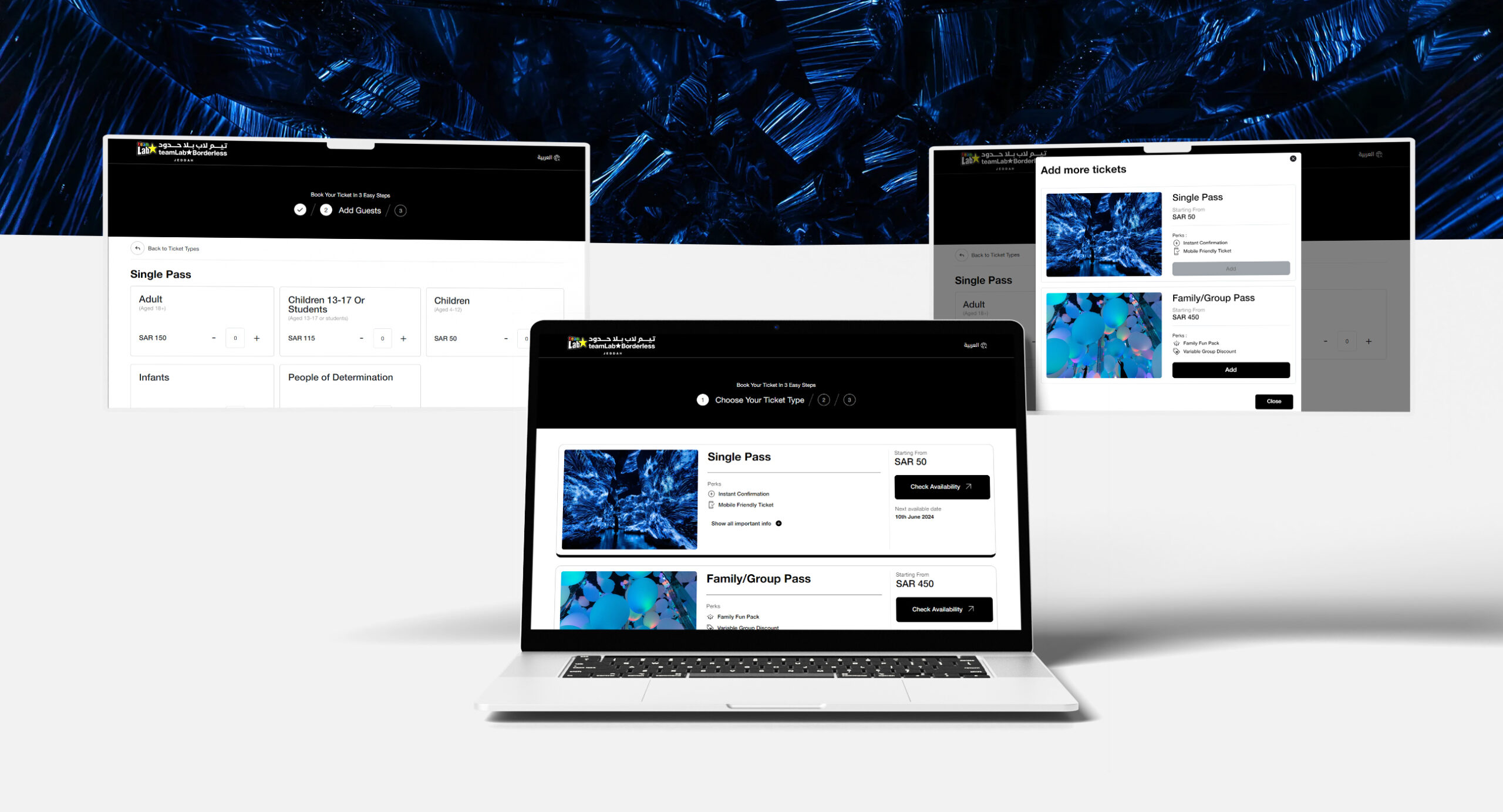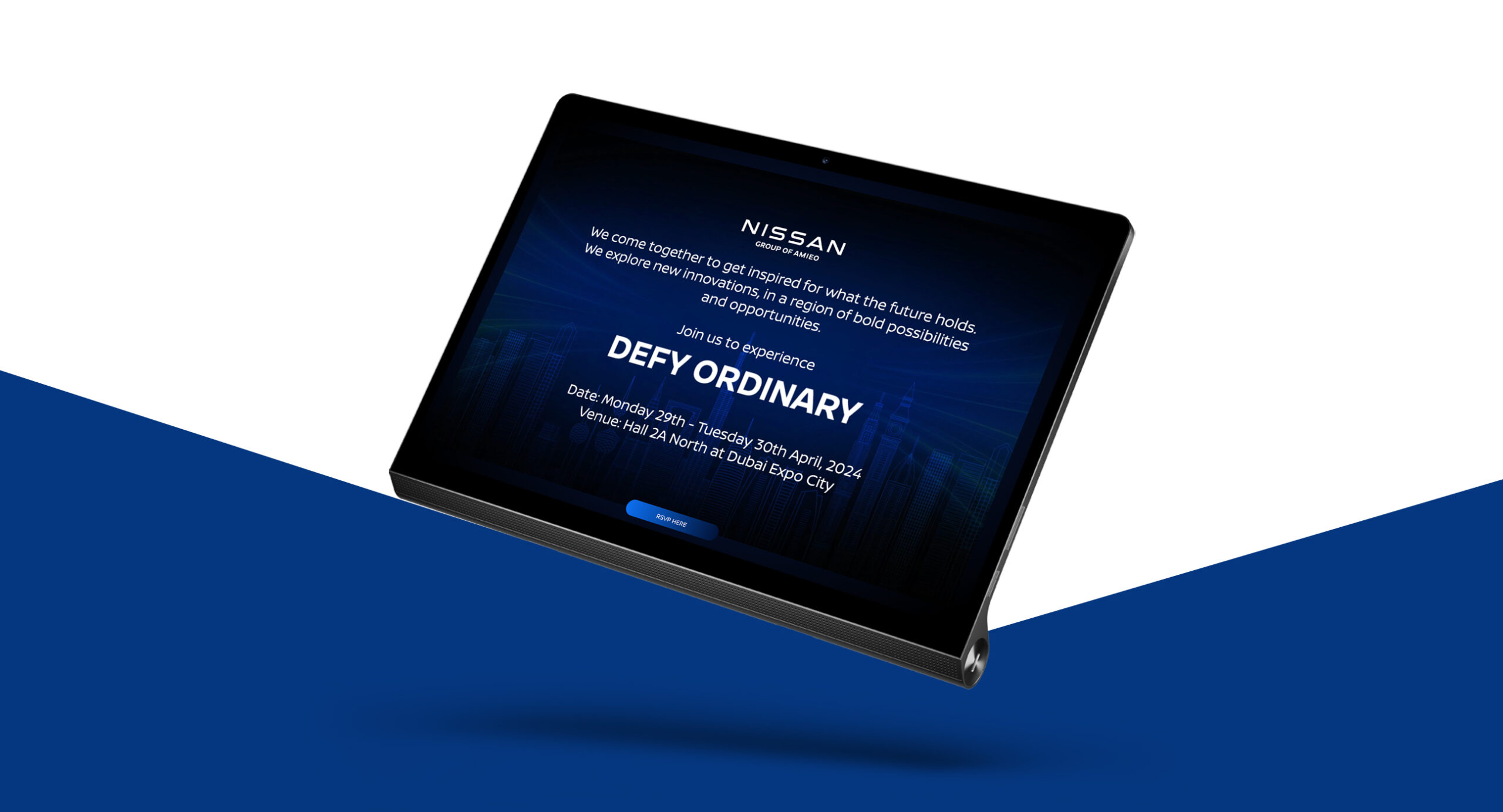One of the most fundamental aspects of every business on the web is the URL. Uniform Resource Locator or URL is typically the address of a particular webpage and is primarily displayed in the address bar of your web browser. Without them, your website won’t even exist in the first place. Users and search engines identify and access web pages. A properly optimized URL plays a critical role in determining how well your pages rank in search results.
As they contain important information about the webpage, it allows search engines to understand a website’s structure and hierarchy, thereby making them an essential part of SEO. Even the words and phrases used in a URL are leveraged by SEO to determine the website’s overall relevance and value to potential customers. Here we explain the importance of having a properly optimized URL and more some of the URL structure best practices, let’s get started.
Importance of SEO friendly URL & Title
URLs and titles serve as the primary point of contact between your website and potential visitors. Therefore, they are essentially crucial components of search engine optimization. The thing about URLs is that they are unique to the point that no two websites will have the same address. Whereas the title gives the user an idea of what to expect from the webpage he/she is about to visit. When creating URLs for businesses, it has to be made with the user in mind and must provide them with an idea about what to expect from your website.
Apart from the content, it is also essential to keep an SEO friendly URL so that it ranks higher in the search results, helps get increased traffic and improves online visibility. Another important thing to consider when creating URLs is that they have to be short, and descriptive. This makes it easier for customers to read and understand the concept. If the customer isn’t able to understand anything about your business from your URL, they won’t even bother clicking further. Also, when creating titles, they must be relevant to the specific content on the webpage. Including targeted keywords in a properly optimized URL helps improve visibility in search results.
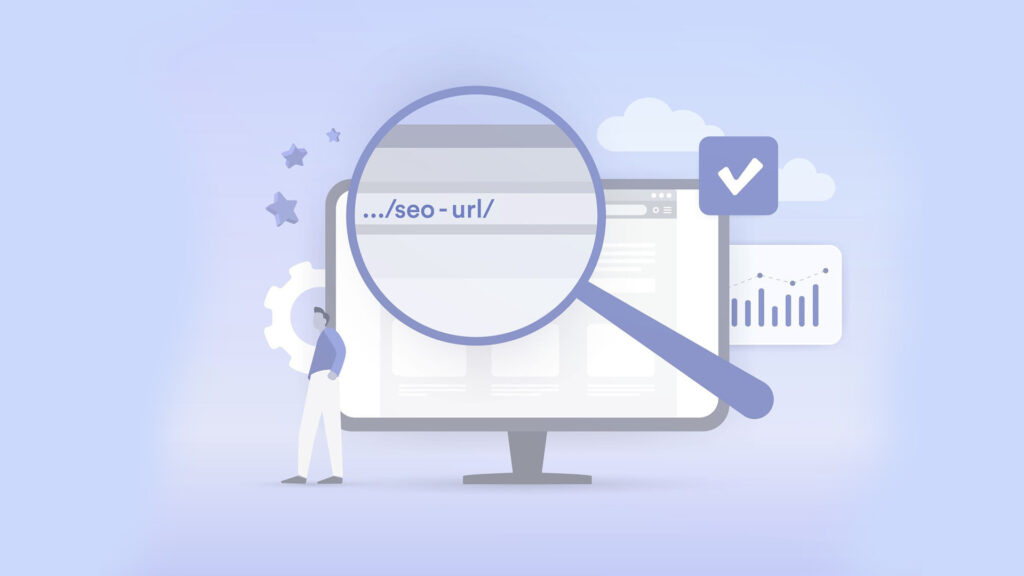
Why must URLs be descriptive and keyword-rich?
As we explained above, descriptive and keyword-rich URLs help users understand and remember your business, thereby improving readability and usability. Let’s consider a few descriptive and keyword-rich SEO friendly URL examples:
https://www.abc.com/blog/improve-seo-with-descriptive-urls
https://www.abc.com/services/website-development-services
Here, we can see that the above best URL structure for seo clearly describes the content of the webpage they lead to. Descriptive terms and appropriate keyword terms are used which help users and search engines understand the topic and purpose of the page. Apart from helping users understand the concept, there are several other SEO benefits which are as follows:
Better clarity & context
Search engines primarily use the descriptive words and phrases included in the URL to understand the context of the particular web page content. This makes it easier for them to know about the topic and gives them clarity and the purpose of your web pages.
Higher chances of ranking
By making your URLs descriptive and keyword-rich, the chances that your web pages will rank higher are more. What happens when your website gets higher visibility and ranking? Your website gets more qualified traffic and higher conversion rates.
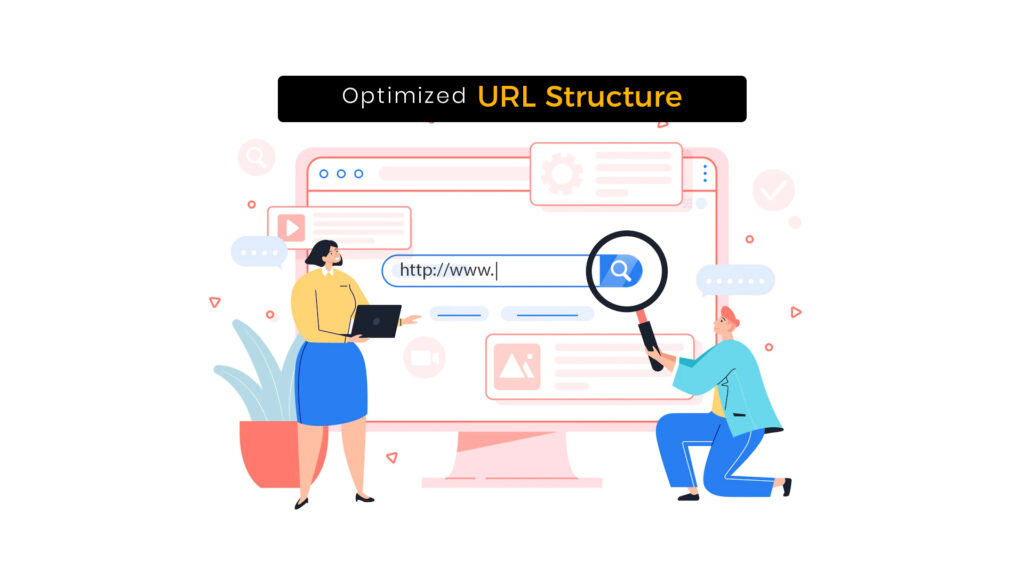
Implementing URL structure best practices
So, now you have understood the importance of making your business descriptive and rich in keywords, isn’t it? But what are the ways to implement the best URL structure for SEO? By following the below URL structure best practices, you can easily create the ideal URL for your business:
Use relevant terms in the URL
As explained in the sections above, choosing the appropriate words and phrases for your URL structure for SEO accurately describes the context of your website. It is important to avoid including filler words that don’t have any value or context to your business.
Keep them short
Not everyone loves to read or has the time to deal with extremely long URLs. Making such URLs for your business can be difficult for users to read and remember. Not only that, they may be truncated in search results, therefore, if your important words are at the end phase, they won’t be visible to the customer. The point is to create a URL structure for SEO by including only relevant keywords and short descriptions.
Avoid using special characters & unnecessary words
Have you ever seen any URLs having characters such as &, # etc? Adding special characters or numbers makes it difficult for users to read. More importantly, it might not be interpreted correctly by search engines. Using unnecessary words affects the best URL structure for SEO as they add length without offering any value.
Use hyphens to separate words
Have words to include but want to separate them neatly? Hyphens are the answer. By using hyphens, you can easily separate words in an SEO friendly URL thereby making it easier for customers and search engines to understand. Just be sure to not include underscores, as search engines often interpret them as a single word.
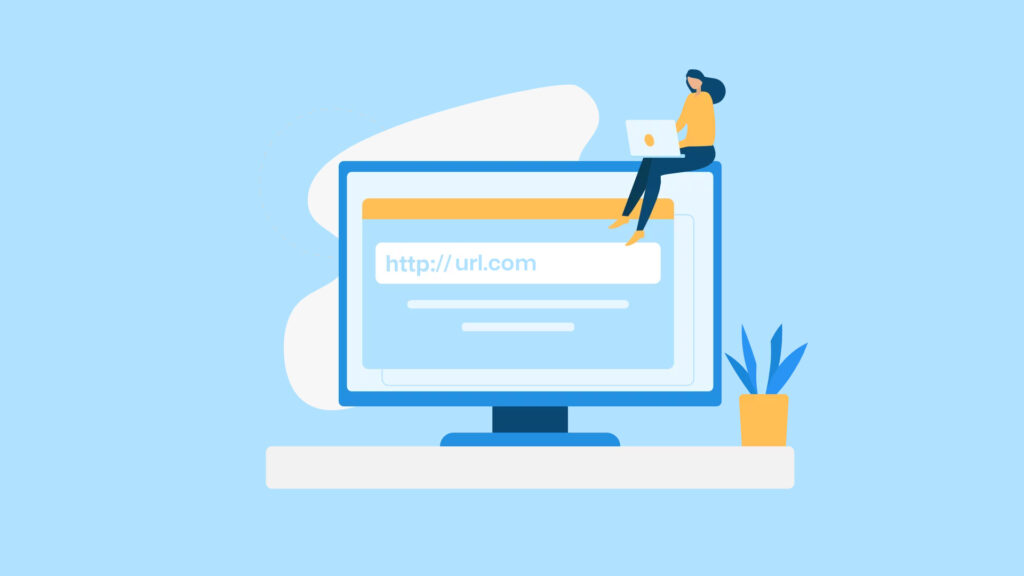
Don’t forget about optimization
What is a properly optimized URL? It is the foundation of every website on the web and is a fact. So, when you decide to create one and implement using the factors above, one thing you mustn’t forget about is optimization. Believe it or not, optimizing your URLs is one of the ways through which you can increase your website traffic.
Since a URL performs much better in a Google search and appears trustworthy, this increases the chances for your audience to visit. What’s more, a properly optimized URL provides search engines and users with a clear idea of what the particular page is about. Therefore, if your existing website URL structure for SEO is not descriptive or keyword-rich, you can still optimise them by using a 301 redirect.
This effectively tells search engines and users that a page has moved to a new URL. By implementing a 301 redirect from an old URL to a new, descriptive and keyword-rich URL, the value and authority of the old page can be still preserved.
Which URL will you mark as properly optimized?
By now you have understood URLs and their importance and related factors. So, we now ask you, which URL will you mark as properly optimized? URLs that are kept short, descriptive, offer clarity & context, have relevant keywords included and more importantly optimized for both desktop/mobile devices are the ones to be marked as properly optimized, always remember that when creating a new URL.
Winding up
Implementing descriptive, keyword-rich and meaningful URLs is essential for SEO and long-term business success. By following the URL structure best practices outlined above and optimizing your existing URLs, you can improve online visibility and drive more qualified traffic to your pages. Choose a leading SEO services agency in Dubai to unlock your website’s full potential through expert URL optimization.
If you are unsure where to get started or want to know what is a properly optimized URL and how to make one, hire a web development company UAE like GTECH. Trust our services and give us a call today to get started.
Related Post
Publications, Insights & News from GTECH






